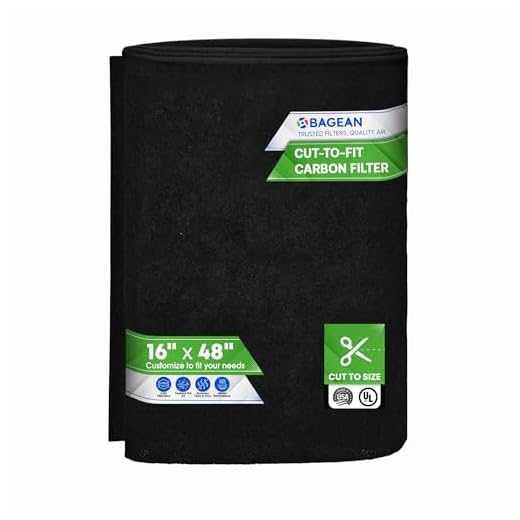




Environmental Impact of Carbon Filters
Activated carbon filters play an essential role in reducing pollutants in water and air, making them a valuable tool for environmental conservation. These filters effectively capture and remove harmful contaminants, such as heavy metals, chlorine, and volatile organic compounds (VOCs). By improving water and air quality, they contribute to healthier ecosystems and promote better public health outcomes.
The production and use of high-quality activated carbon filters can have a positive impact on sustainability. When properly maintained, these filters reduce waste and minimize the need for bottled water or single-use plastic products. Additionally, their ability to eliminate harmful substances allows for safer disposal methods, lessening the ecological footprint associated with traditional filtration systems. This makes activated carbon filters not only a practical choice but also a responsible one for environmentally conscious consumers.
Sustainability and Carbon Footprint Reduction
Activated carbon filters can significantly contribute to sustainability efforts by reducing reliance on bottled water and single-use plastics. As households and businesses shift toward cleaner water solutions, the demand for these filters increases. This transition not only minimizes waste but also diminishes the energy and resources required for producing plastic bottles. The cumulative effect of choosing high-quality filters leads to a decrease in overall environmental impact.
Implementing these filters helps improve water quality without introducing harmful chemicals found in many traditional purification methods. High-quality activated carbon filters efficiently capture contaminants while sustaining essential minerals. This dual benefit supports healthier ecosystems and promotes better public health outcomes. By reducing the carbon footprint associated with water consumption, consumers can make a meaningful difference in their environmental impact.
Choosing the Right Activated Carbon Filter
Selecting an activated carbon filter requires careful consideration of various factors to ensure optimal performance. The type of contaminants in your water or air should guide your choice, as different filters target specific impurities. Additionally, evaluating the filter’s capacity to handle the volume of air or water in your home is crucial. This ensures that the filter operates efficiently without being overwhelmed.
Another important aspect is the filter’s lifespan and replacement frequency. Some filters may require more frequent changes depending on usage and exposure to pollutants. Looking for certifications, such as ANSI/NSF standards, can also provide peace of mind regarding quality and efficacy. Customer reviews can offer insights into long-term performance and any potential issues encountered after purchase.
Factors to Consider Before Purchasing
When looking for an activated carbon filter, it is essential to evaluate the specific contaminants you want to target. Different filters come with varying capacities to remove substances like chlorine, volatile organic compounds, and odors. Assessing the performance ratings and certifications of the filter can provide insight into its effectiveness. Additionally, consider whether the filter is designed for your intended use, such as drinking water purification or air filtration, as different applications may require unique features.
Another vital aspect to weigh is the filter’s lifespan and maintenance requirements. Some filters need regular replacement to maintain their efficiency, while others may require occasional cleaning or have a longer lifespan. It’s important to check the manufacturer’s guidelines to understand how often you will need to replace the filter and what maintenance tasks might be necessary. This knowledge can contribute to more informed purchasing decisions and long-term satisfaction with your investment.
Maintenance Tips for Your Filter
Regular maintenance is essential for ensuring the efficiency of your activated carbon filter. Start by checking the manufacturer’s guidelines for recommended replacement intervals, as using the filter beyond its lifespan can lead to decreased performance. Visually inspect the filter for any signs of wear or blockage. Clear any accumulated debris from the filter housing to help maintain optimal airflow.
Cleaning the pre-filters periodically can also extend the life of your carbon filter. Gently rinse them with water to remove dust and particles, then allow them to air dry completely before reinstallation. Scheduling routine checks will help to identify any issues early and keep your filtration system running smoothly. Additionally, keep the surrounding area free from contaminants to reduce the burden on the filter, enhancing its overall effectiveness.
Ensuring Longevity and Effectiveness
To maintain the efficiency of your activated carbon filter, regular maintenance is essential. This includes checking and replacing the filter according to the manufacturer’s recommendations. Often, filters will have indicators that signal when they need replacement. Keeping an eye on these indicators can prevent diminished performance and ensure that your filter is working effectively to eliminate contaminants from your air or water.
Proper placement and installation also play a crucial role in the effectiveness of carbon filters. Ensuring that the filter fits snugly without any gaps will maximize its ability to purify. Additionally, avoiding exposure to extreme temperatures or humidity can extend the filter’s lifespan. Regularly cleaning the surrounding areas and ensuring proper airflow contributes to the overall performance and durability of the activated carbon filter.
FAQS
What is an activated carbon filter?
An activated carbon filter is a type of filtration system that uses activated carbon to remove impurities and contaminants from air or water, making it more suitable for consumption or use.
How does upgrading to a high-quality activated carbon filter benefit the environment?
Upgrading to a high-quality activated carbon filter can lead to reduced waste and pollution, as these filters effectively remove harmful substances, which helps in lowering the overall carbon footprint and promoting sustainability.
What factors should I consider when choosing an activated carbon filter?
When choosing an activated carbon filter, consider factors such as the specific contaminants you want to remove, the filter’s capacity and lifespan, its flow rate, and any certifications or performance standards it meets.
How can I ensure the longevity and effectiveness of my activated carbon filter?
To ensure the longevity and effectiveness of your activated carbon filter, follow maintenance tips such as regularly replacing the filter according to the manufacturer’s guidelines, cleaning the filter housing, and keeping it stored in a dry, cool place when not in use.
Are all activated carbon filters created equal?
No, not all activated carbon filters are created equal. The quality of the activated carbon, the design of the filter, and specific capabilities can vary significantly, which is why it’s important to choose a high-quality option that suits your needs.
Related Links
10 Benefits of Using Activated Carbon Filters at Home
Why Activated Carbon Filters Are Essential for Clean Water

